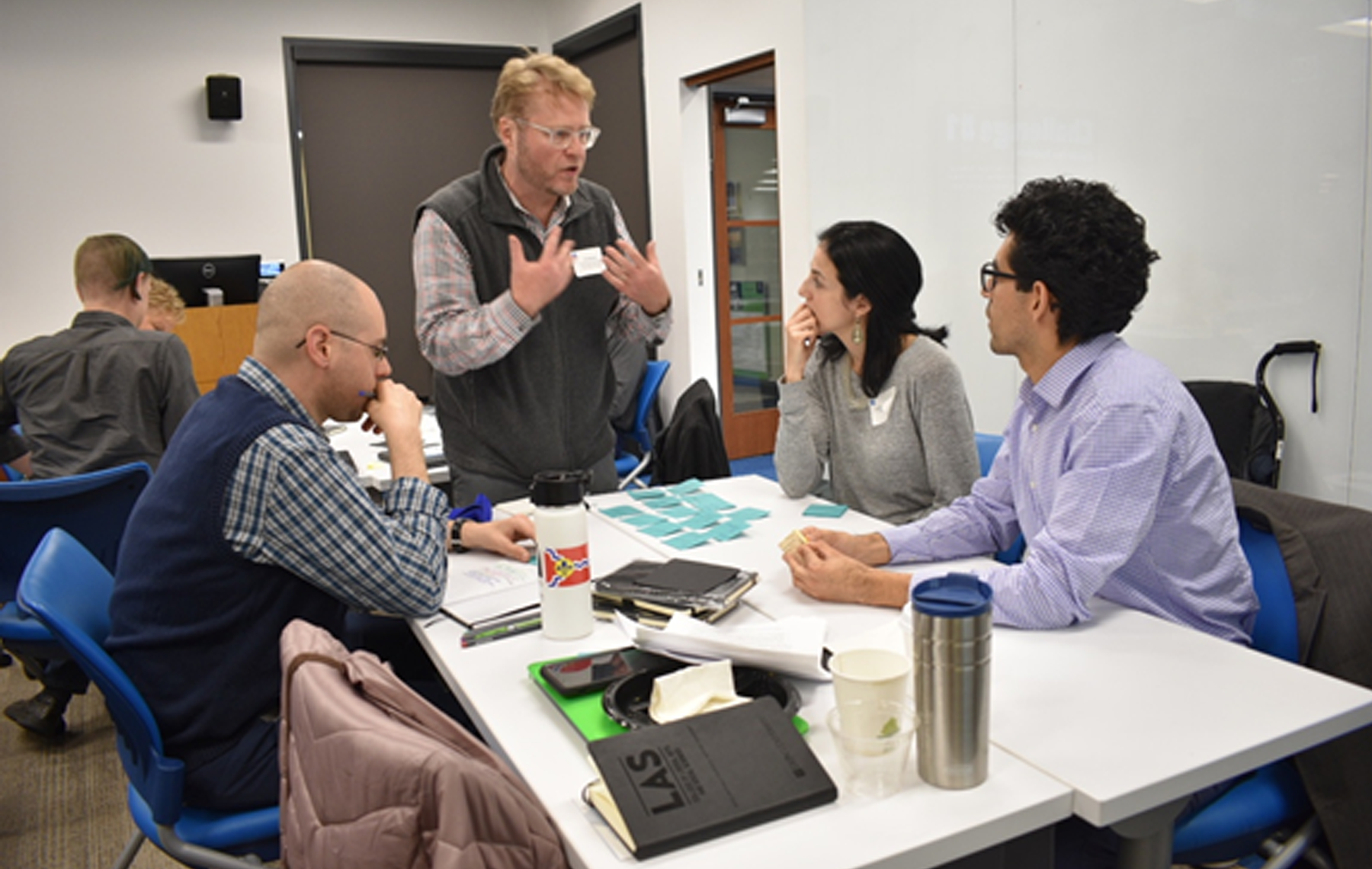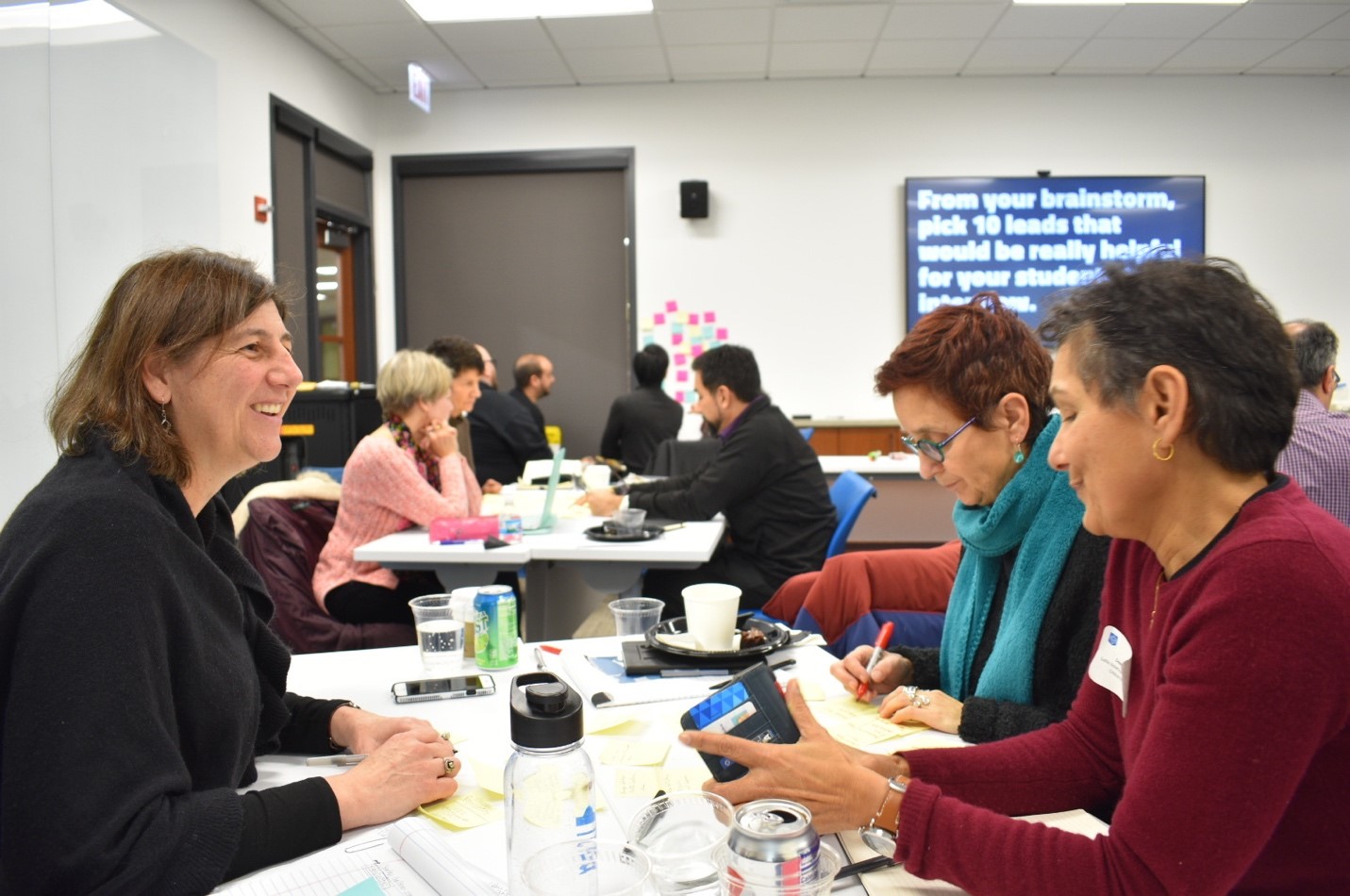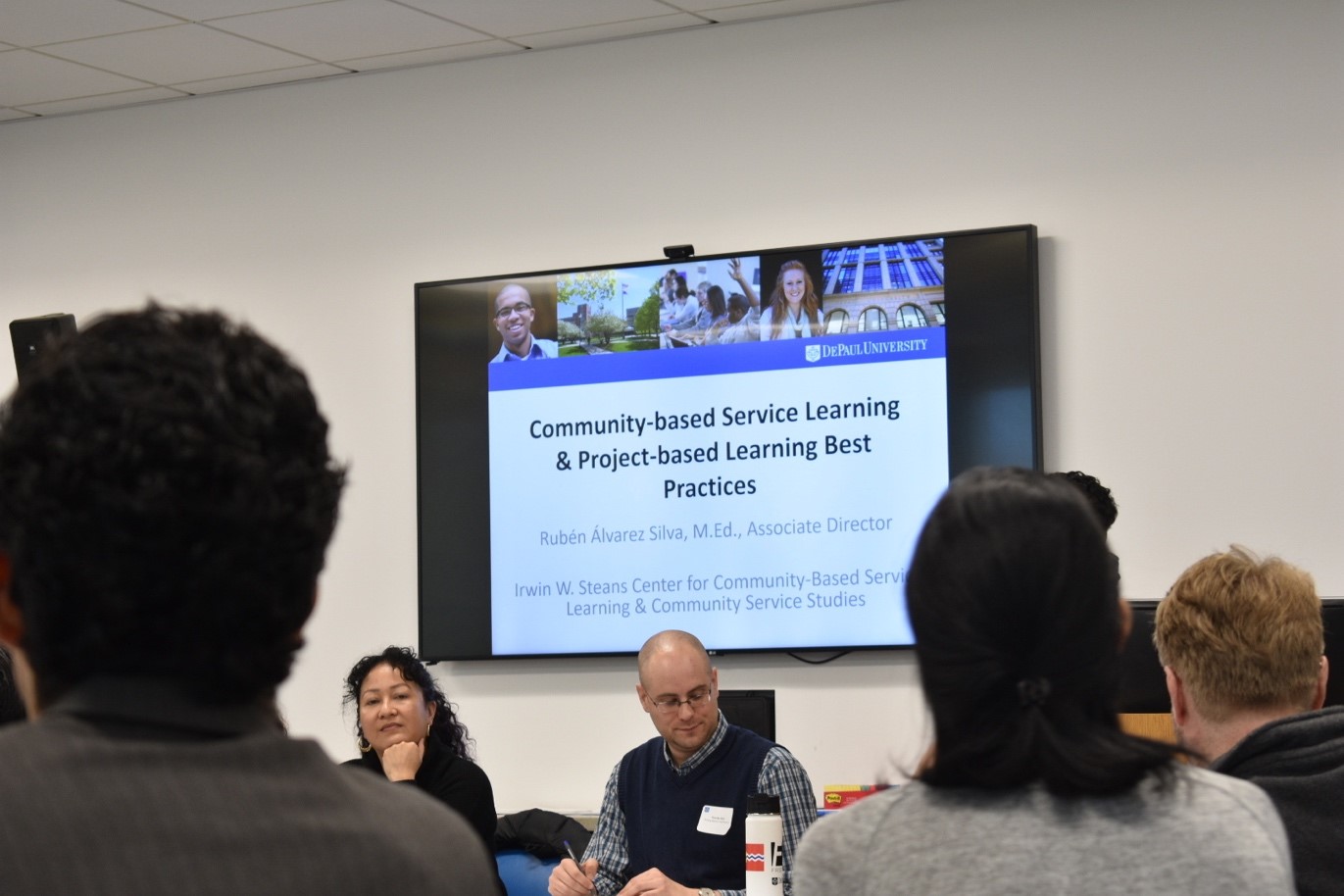 Workshop facilitator Dr. Seán McCarthy gives feedback to DePaul faculty members Carolina Barrera-Tobón (Modern Languages), Tim Elliott (Writing, Rhetoric, and Discourse), and Joe Tafoya (Political Science).
Workshop facilitator Dr. Seán McCarthy gives feedback to DePaul faculty members Carolina Barrera-Tobón (Modern Languages), Tim Elliott (Writing, Rhetoric, and Discourse), and Joe Tafoya (Political Science).
On December 2, 2019, twenty-six faculty members in
DePaul’s College of Liberal Arts and Social Sciences came together for a full-day workshop on project-based learning. The workshop featured a keynote session by Georgetown Associate Provost and national project-based learning expert
Dr. Randy Bass and a collaborative course-design workshop led by
Dr. Seán McCarthy of James Madison University (JMU). McCarthy is a founding member of JMU X-Labs, a national leader in multidisciplinary, project-based learning.
The workshop was supported by the
Julian Grace Foundation and
DePaul’s College of Liberal Arts and Social Sciences. Faculty who participated received a $300 stipend and can receive an additional $200 for applying their learning in either an application to teach a project-based course through the
CPbL or
HumanitiesX programs, or by modifying an existing course to encorporate a project.
In addition to the time with Bass and McCarthy, the workshop also featured a Q&A with a panel of DePaul faculty engaged in project-based learning, and an introduction to community-engaged service learning, led by the
Steans Center Associate Director, Rubén Álvarez Silva.
What is PbL?
PbL assignments have most or all of the following characteristics:
- They are driven by a
complex question or an authentic, open-ended challenge. The question or challenge requires a response that is
not fully understood by the students or the teacher at the outset of work.
- They require students to engage in
sustained inquiry, with multiple opportunities for iteration, critique, revision, and reflection.
- They typically yield a
public product for a real-world audience.
- They often involve
collaboration and teamwork.
Building PbL Resources and Encouraging Faculty Relationships
For the College of Liberal Arts and Social Sciences, the workshop aligned with a broader strategy to both develop PbL resources—in the form of ideas, examples, and coaching—and to provide space for faculty to develop relationships centered on pedagogical innovation. Project-based learning and interdisciplinary collaboration are both at the core of the College’s two major teaching fellowship opportunities, the
Community and Project-based Learning Co-Teaching Fellowship (CPbL) and the
HumanitiesX Fellowship.
 DePaul faculty members Delia Constentino (History of Art and Architecture), Ann Russo (Women and Gender Studies), and Lourdes Torres (Latin American and Latino Studies), work on a team during a brainstorming activity.
DePaul faculty members Delia Constentino (History of Art and Architecture), Ann Russo (Women and Gender Studies), and Lourdes Torres (Latin American and Latino Studies), work on a team during a brainstorming activity.
Though the workshop was a one-time event, DePaul faculty who are interested in PbL can learn more via the following:
- Read the texts assigned as pre-workshop readings,
Creating Wicked Students: Designing Courses for a Complex World, by Paul Hanstedt (ch. 4, “Creating Wicked Assignments”) and
Project-based Learning in the First Year, edited by Kristin Wobbee and Elisabeth A. Stoddard (ch. 4, “The Value of a Transdisciplinary Approach,” by Boudreau and Wobbe).
- Read about
JMU X-Labs in the Chronicle of Higher Education
- Visit the
PbL Educator’s Resource Library, crafted by the Institute for Project-based Learning at Worcester Polytechnic University, a national leader in PbL
- Explore resources from the Stanford Design School on how to use design thinking to organize a class, including the
Crafting a Design Class Guide and the
Design Thinking Bootleg
- Explore the opportunities for PbL teaching at DePaul, including the
Community and Project-based Learning Co-Teaching Fellowship (CPbL) and the
HumanitiesX Fellowship.
 The DePaul University Faculty Panel, which included Jane Baxter (Anthropology), Lisa B. Y. Calvente (College of Communication), Timothy Elliott (Writing, Rhetoric, and Discourse), and Amy Tyson (History). The panel was moderated by HumanitiesX Faculty Director Lisa Dush and LAS Associate Dean Margaret Storey.
The DePaul University Faculty Panel, which included Jane Baxter (Anthropology), Lisa B. Y. Calvente (College of Communication), Timothy Elliott (Writing, Rhetoric, and Discourse), and Amy Tyson (History). The panel was moderated by HumanitiesX Faculty Director Lisa Dush and LAS Associate Dean Margaret Storey.